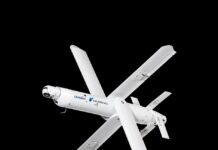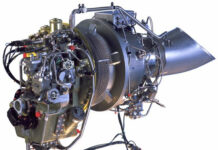On 19 April 2021, Alfa Laval commissioned a test facility for fuel cells as an auxiliary power source on ships at the Test and Training Centre in Aalborg, Denmark. The system uses carbon neutral, renewable methanol as fuel for clean operation without particulate emissions. Methanol is one of the most promising non-fossil fuels as it can be produced from biomass, biogas and waste.
The High Temperature Proton Exchange Membrane (HTPEM) technology used by Blue World Technologies has a higher tolerance to thermal cycling than other fuel cell technologies. This makes it well suited for flexible power generation. The “fuel” methanol of an HTPEM cell is easier to handle than the hydrogen gas of a classic low-temperature fuel cell, which is stored under up to 700 bar of high pressure. As a liquid fuel, methanol also has the advantage that it can be easily stored and used with minimal changes to the existing filling station infrastructure.
The aim of the joint tests is to use the technological approach of the HTPEM fuel cell solution to create a highly efficient and cost-effective, yet realistic, alternative to combustion-based solutions for use in shipping. Nevertheless, a service life comparable to that of combustion technologies is expected for use on board ships. The test setup has an output of 200 kW and is expected to be scalable up to an output of 5 MW (= 5,000 kW) through a modular design.
The project, funded by the Danish Energy Technology Development and Demonstration Program (EUDP), is a joint project between fuel cell manufacturer Blue World Technologies, Alfa Laval Marine Systems and ship owners DFDS, Maersk Drilling and Hafnia.
Wolfgang Gelpke












